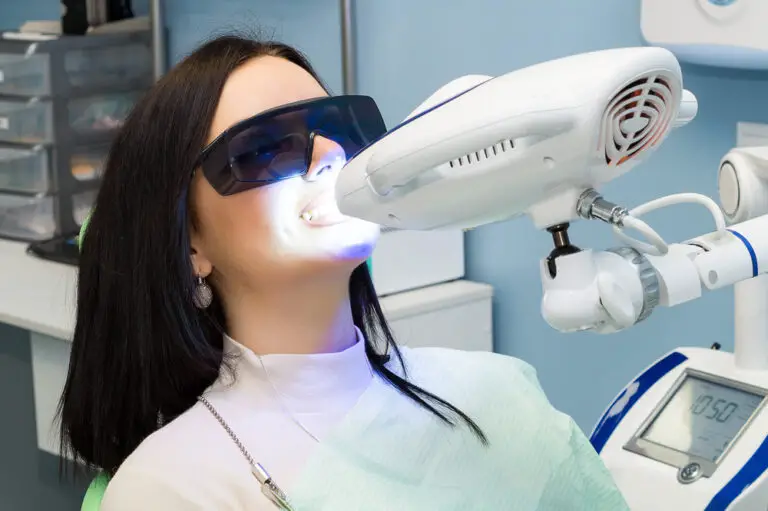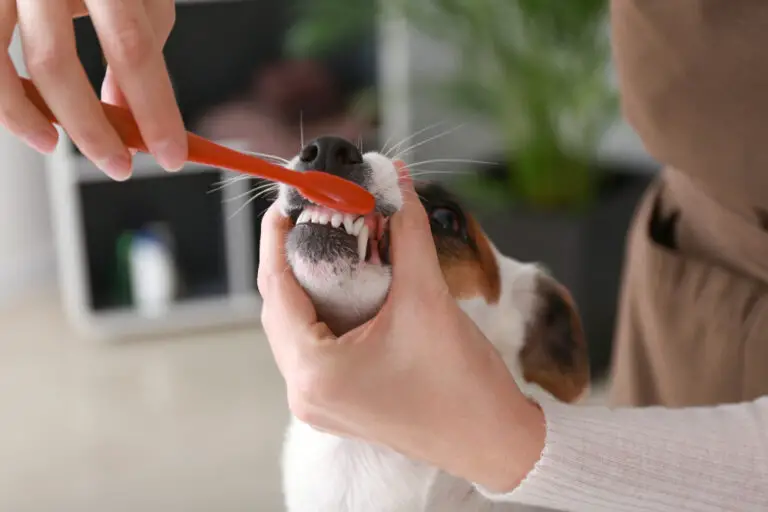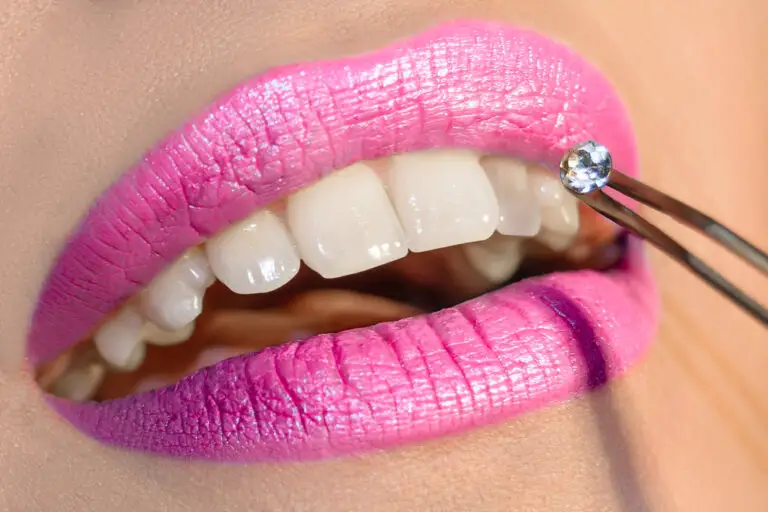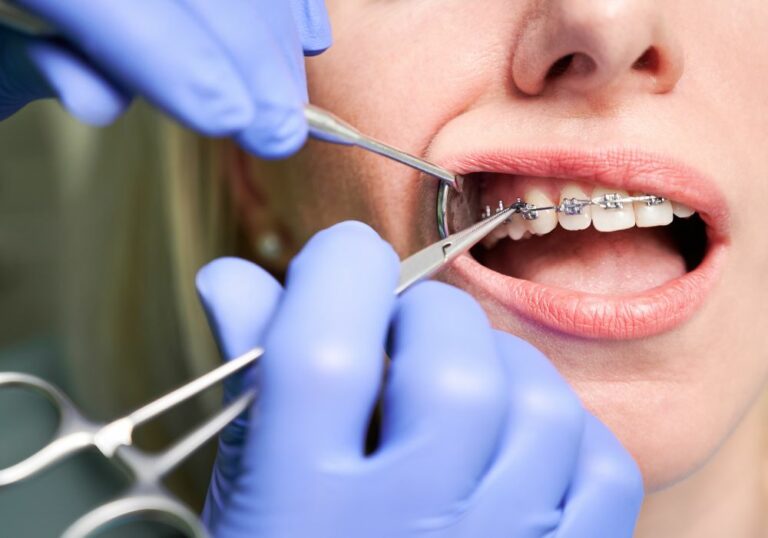Are you a new mom wondering if it’s normal for your baby to bite your nipple while breastfeeding? Or are you a seasoned mom dealing with a teething baby who has recently started to bite during feeding sessions? Either way, you’re not alone. Many babies bite their mother’s nipples during teething, and it can be quite painful and frustrating for both of you.
Biting during breastfeeding is most common when babies are teething. As their teeth start to come in, they may feel discomfort in their gums, and biting down on something can help relieve that discomfort. Unfortunately, that something may be your nipple. While it can be painful, it’s important to understand that your baby is not trying to hurt you on purpose. They are simply trying to find relief from their teething discomfort. So, what can you do to prevent and manage nipple biting during breastfeeding?
Understanding Teething in Babies
Teething is a natural process that occurs when your baby’s teeth start to grow and emerge through their gums. It usually starts around 4-7 months of age and can continue until the age of 2-3 years when all the primary teeth have erupted. During this time, your baby may experience discomfort and pain, which can cause them to become irritable and fussy.
Teething can also affect your baby’s feeding habits, including breastfeeding. Babies may bite their mother’s nipples during breastfeeding as a way to soothe their sore gums. This can be painful for the mother and may cause her to stop breastfeeding earlier than planned.
It’s important to note that not all babies experience the same symptoms during teething. Some babies may experience no discomfort at all, while others may have a more difficult time. Below are some common signs and symptoms of teething:
- Drooling
- Irritability and fussiness
- Swollen and tender gums
- Difficulty sleeping
- Loss of appetite
- Chewing on objects
If you notice any of these symptoms in your baby, it’s important to provide them with comfort and relief. This can be done by using teething toys, teething rings, or a clean, wet washcloth to chew on. You can also gently massage your baby’s gums with a clean finger to help ease their discomfort.
In summary, teething is a natural process that can cause discomfort and pain for your baby. It’s important to be aware of the signs and symptoms of teething and to provide your baby with comfort and relief during this time. If your baby is biting your nipples during breastfeeding, it may be a sign that they are teething and in need of relief.
Do Babies Bite Nipples When Teething?
Teething can be a challenging time for both you and your baby. As your baby’s teeth start to emerge, they may experience discomfort, and this can affect their feeding habits. Some babies may start to bite their mothers’ nipples during breastfeeding, and this can be painful for you.
Babies bite nipples when teething because they are looking for something to relieve the discomfort in their gums. Biting can provide some relief, and your baby may also be curious about their new teeth. However, biting can be painful and may cause damage to your nipples.
To prevent your baby from biting your nipples, you can try the following tips:
- Offer a teething toy before breastfeeding to soothe your baby’s gums and decrease the need to bite during feeding.
- Watch for signs that your baby is about to bite, such as pulling away from the breast or becoming distracted.
- When you notice these signs, gently remove your baby from the breast and say “no” in a firm but calm voice.
- If your baby does bite, try not to react too strongly, as this may startle them and cause them to bite down harder. Instead, calmly remove them from the breast and say “no” again.
It’s important to remember that biting during breastfeeding is a common issue that many mothers face. With patience and persistence, you can train your baby not to bite and continue to breastfeed comfortably.
Effects of Biting on Breastfeeding Mothers

Biting during breastfeeding can be a painful and uncomfortable experience for mothers. It can cause physical discomfort, emotional distress, and even lead to complications such as mastitis or infection.
Here are some of the effects that biting can have on breastfeeding mothers:
- Pain and Discomfort: Biting can cause pain and discomfort during breastfeeding, which can make it difficult for mothers to continue nursing. The pain can range from mild discomfort to severe pain, depending on the severity of the bite.
- Nipple Trauma: Biting can cause trauma to the nipple, which can lead to soreness, cracking, and bleeding. This can make it difficult for mothers to continue breastfeeding and can also increase the risk of infection.
- Emotional Distress: Biting can be a stressful and emotional experience for mothers, especially if it happens frequently or is particularly painful. It can make mothers feel frustrated, angry, or even guilty for not being able to prevent it.
- Decreased Milk Supply: Biting can also lead to a decrease in milk supply, as mothers may be hesitant to continue breastfeeding due to the pain and discomfort. This can lead to further complications and may require additional interventions to increase milk production.
If you are experiencing any of these effects, it is important to seek support and advice from a healthcare professional or lactation consultant. They can provide guidance on how to manage biting and prevent further complications.
How to Prevent Biting During Breastfeeding
Breastfeeding is a beautiful and natural way to nourish your baby, but it can be painful if your baby starts to bite. Biting can happen for various reasons, including teething, exploration, and play. However, there are some things you can do to prevent biting during breastfeeding.
Offer a Teething Toy
If your baby is teething, they may bite during breastfeeding to relieve their sore gums. Offering a teething toy before breastfeeding can help satisfy their need to chew and reduce the likelihood of biting. You can also try giving them a cold, wet washcloth to chew on.
Watch for Signs of Hunger
Babies are more likely to bite when they are not hungry or are losing interest in breastfeeding. Watch for signs that your baby is hungry, such as rooting or sucking on their fists, and offer the breast before they become frustrated or bored.
Pay Attention to Your Baby’s Cues
Babies communicate in various ways, and paying attention to their cues can help prevent biting. If your baby is becoming distracted or fidgety during breastfeeding, it may be a sign that they are losing interest or becoming uncomfortable. Try changing positions or taking a break and offering the breast again later.
Use Positive Reinforcement
Positive reinforcement can be a useful tool when trying to prevent biting during breastfeeding. Praise your baby when they latch on correctly and feed without biting. You can also offer them a small reward, such as a cuddle or a song, after a successful feeding session.
Be Prepared to Stop the Feeding
If your baby does start to bite during breastfeeding, it is essential to stop the feeding immediately. Use your finger to break the suction and gently remove your breast from their mouth. Offer them a teething toy or a cold washcloth to chew on instead.
In conclusion, biting during breastfeeding can be a challenging issue for many mothers. However, with some patience and persistence, you can prevent biting and enjoy a comfortable and enjoyable breastfeeding experience with your baby.
Teething and Alternative Feeding Methods

When your baby starts teething, you might experience some discomfort while breastfeeding. Some babies tend to bite down on the nipple while feeding, which can be painful. However, this doesn’t mean you have to stop breastfeeding altogether. Here are some alternative feeding methods you can try:
- Offer a teething toy: Giving your baby a teething toy to chew on before breastfeeding can help ease the discomfort and reduce the urge to bite down on your nipple.
- Use a nipple shield: A nipple shield is a thin silicone cover that you can place over your nipple before feeding. It can help protect your nipple from being bitten and also make it easier for your baby to latch on properly.
- Pump and bottle feed: If your baby’s biting is causing too much pain, you can pump your breast milk and bottle feed instead. This way, your baby can still get the nutrition they need while giving your nipples a break.
- Offer solid foods: If your baby is six months or older, you can start introducing solid foods into their diet. This can help satisfy their hunger and reduce the frequency of breastfeeding.
It’s important to note that these alternative feeding methods should not replace breastfeeding altogether. Breast milk provides essential nutrients and antibodies that can help protect your baby from infections and illnesses. If you’re experiencing pain or discomfort while breastfeeding, be sure to consult with a lactation consultant or your healthcare provider for additional support and guidance.
Pacifiers and Teething Toys: A Solution
When your baby is teething, they may feel the urge to bite down on something to relieve the discomfort they’re feeling in their gums. While it’s natural for babies to want to bite, it can be painful for you as a breastfeeding mother. Fortunately, there are some solutions that can help both you and your baby during this difficult time.
One option is to use pacifiers. Pacifiers can help soothe your baby and provide them with something to bite down on that won’t cause you any pain. However, it’s important to note that pacifiers should not be used as a substitute for breastfeeding. If your baby is hungry, they need to be fed, and a pacifier won’t provide them with the nutrition they need.
Another option is to use teething toys. Teething toys are designed to be chewed on, and they can provide your baby with relief from the pain and discomfort of teething. There are many different types of teething toys available, from soft rubber toys to hard plastic toys. It’s important to choose a toy that is appropriate for your baby’s age and development level.
When choosing a teething toy, look for one that is easy for your baby to hold and manipulate. It should also be made from safe, non-toxic materials. Some teething toys can be chilled in the refrigerator or freezer, which can provide additional relief for your baby’s sore gums.
In summary, pacifiers and teething toys can be a helpful solution for babies who are teething and prone to biting. However, it’s important to use these tools in moderation and not as a substitute for breastfeeding. Always choose toys that are safe and appropriate for your baby’s age and development level, and be sure to monitor your baby closely while they’re using them.
When to Seek Professional Help

Breastfeeding can be a challenging experience, especially when your baby starts teething. While biting is a common behavior among teething babies, it can be painful and frustrating for moms. Here are some signs that you may need to seek professional help:
- Painful breastfeeding: If your baby’s biting is causing you pain, it’s time to seek help. A lactation consultant can help you identify the cause of the pain and provide solutions to help you and your baby breastfeed comfortably.
- Damaged nipples: If your baby’s biting is causing damage to your nipples, such as cracks or bleeding, it’s important to seek help. A lactation consultant can help you identify the cause of the damage and provide solutions to help you heal and prevent further damage.
- Difficulty latching: If your baby is having difficulty latching or staying latched, it’s important to seek help. A lactation consultant can help you identify the cause of the difficulty and provide solutions to help you and your baby breastfeed successfully.
- Low milk supply: If you’re experiencing a low milk supply, it’s important to seek help. A lactation consultant can help you identify the cause of the low milk supply and provide solutions to help you increase your milk production.
Remember, seeking professional help is not a sign of weakness. It’s a proactive step towards ensuring that you and your baby have a successful breastfeeding experience.
Frequently Asked Questions
How can I prevent my baby from biting me while breastfeeding?
To prevent your baby from biting you while breastfeeding, make sure they are latched on properly. If your baby is not latched on correctly, they may bite down to try and hold on. You can also try offering a teething toy or a cold washcloth to chew on before breastfeeding, to help soothe their gums.
What are some home remedies for baby bites during breastfeeding?
If your baby bites you while breastfeeding, you can try applying a cold compress to the affected area to reduce swelling and pain. You can also try applying some breast milk to the bite to help promote healing.
What should I do if my baby bites my breast while nursing?
If your baby bites your breast while nursing, gently remove them from your breast and say “no biting.” You can also try offering a teething toy or a cold washcloth to chew on before resuming breastfeeding.
At what age do babies start teething?
Babies can start teething as early as three months old, but most babies start teething between six and twelve months old.
What are the signs that my breastfed baby is teething?
Some signs that your breastfed baby is teething include drooling, fussiness, irritability, biting, and swollen or red gums.
How can I soothe my baby’s teething discomfort during breastfeeding?
To soothe your baby’s teething discomfort during breastfeeding, you can try offering a teething toy or a cold washcloth to chew on before breastfeeding. You can also try applying a cold compress to their gums to help reduce swelling and pain.






